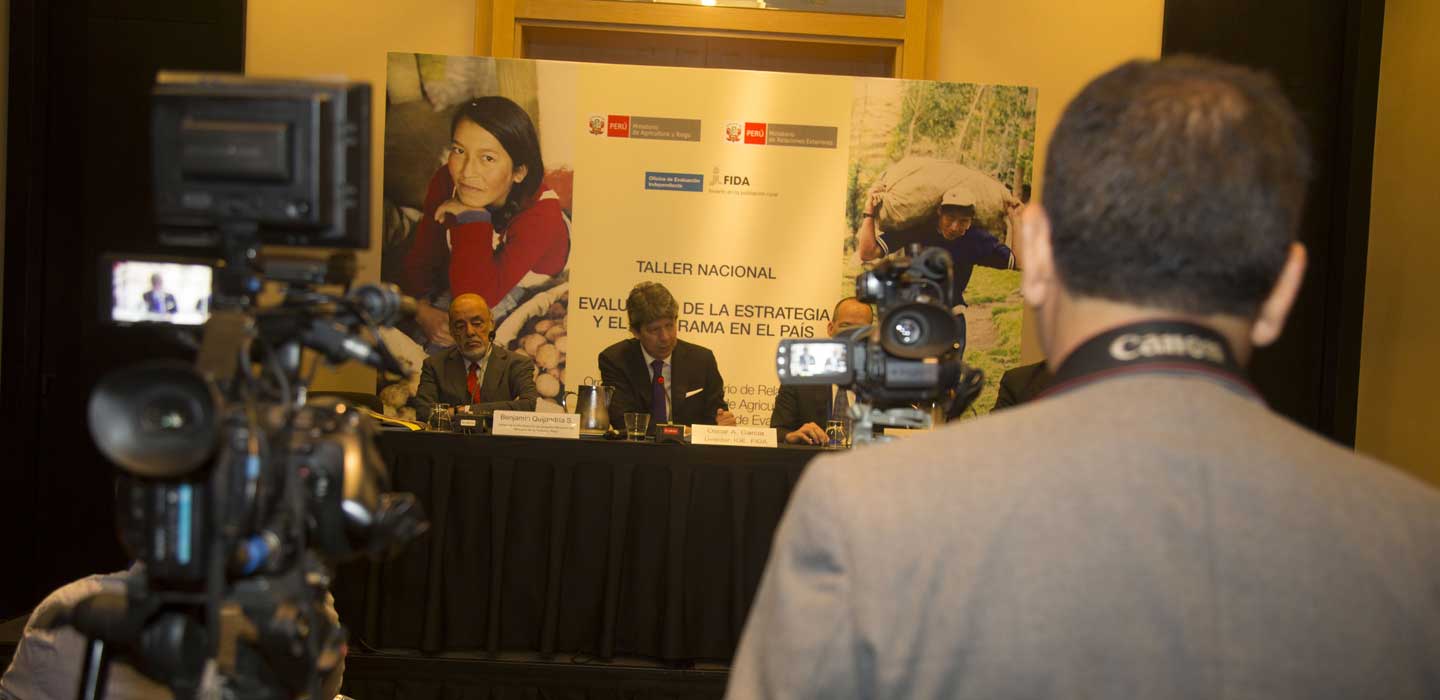Stories from the Field - We are now economically independent - IOE
IOE evaluation shows how IFAD's projects in Peru have contributed to improve women's lives. Better incomes and stronger women’s organizations are notable achievements. Among the challenges, farmers have pointed out ownership of infrastructures and a guarantee of secure markets.
"Thanks to this project, we are economically independent from our husbands, “says Nancy Guerrero, member of the Comité de vaso de leche las tres Marías (Vessel Committee of the three Marias), an association for cuy [guinea pig] production. “Before, they were the only ones earning a salary for the families. Now we do as well. My son has just started the University and I will invest my money in his future." She feeds her guinea pigs while talking and is clearly proud of their numbers and their health.
Nancy lives in the San Martín region, a remote area between the mountains and the jungle. The region is very rich – abundant water, rich soil, good weather, and other natural resources. But the region is poor, mainly due to the lack of opportunities for the poorest communities.
Nevertheless, San Martín's people are not idle. Here and there, associations develop projects to improve living conditions. Some of them count on IFAD's support and are achieving remarkable results.
Before IFAD's support, the cuyes did not at a sufficient weight to be sold; sometimes they even died. After receiving training through the project, association members knew how to feed them properly and the kind of medicines they needed to survive prevalent illnesses. Now the prices they get in the market are significantly higher.
Not far from Nancy's village, Elsa Vargas del Castillo peels bananas with incredible speed and dexterity; her hands are marked by years and years of work. "Some years ago, the situation was very difficult,” she explains. “There weren’t even shops to buy food. We raised our children thanks to the banana flour. We learned how to cultivate banana from our parents. Now our production has improved. We have machines and a technician who supports us so we are able to produce our products at high quality for the markets. We urgently need a secure market to go ahead."
Elsa is a member of the Asociación de emprendedores agropecuarios los Naranjos (Naranjos Agricultural Entrepreneurs Association). Thanks to the technical support they received and the machines they bought, they are now producing banana flour, marmalade and cakes. The quality and quantity of the products have increased; they also meet the health requirements that allow them to sell their products in the formal market.
The families of the region have seen their income grow from 1.91 soles (USD 0.58) to 6.85 soles (USD 2.09) per day. People from San Martín, like Elsa and Nancy, are proud of their achievements and want to go further. IOE's evaluation will help IFAD accompanying them on the path ahead.
More information on the evaluation.
These stories result from field visits to Peru made by the Independent Evaluation Office of the International Fund for Agricultural Development (IOE). IOE evaluated six IFAD-supported projects implemented between 2006 and 2016 in Sierra Sur, Sierra Norte, Selva Alta and the area around the Apurímac and Mantaro rivers – some of the poorest and most remote rural areas in the country.

